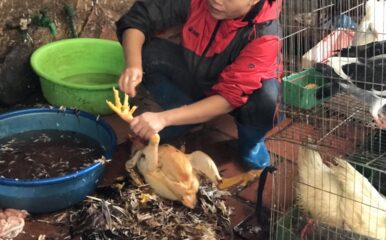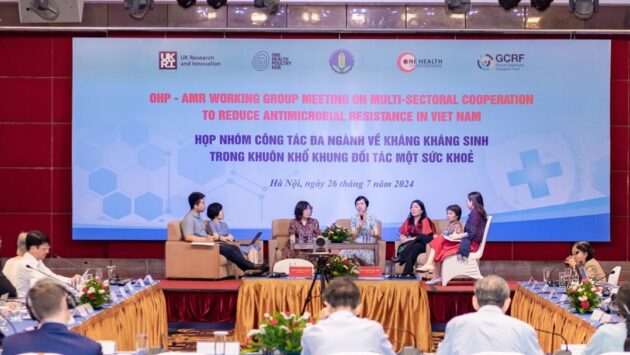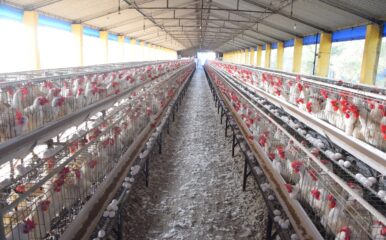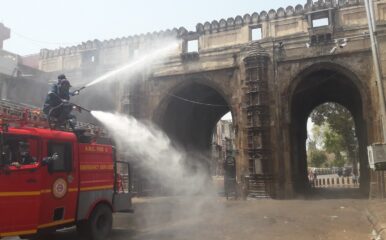
Making Impact
CONVENING FOR ONE HEALTH

Vietnam researchers have played a key convening role, facilitating intersectoral collaboration that can continue to support the country’s efforts to lower its very high levels of antimicrobial resistance.
Antimicrobial resistance (AMR) is a major animal and public health concern in Vietnam. This is despite the country being one of the first to develop a national action plan for AMR – and the first in the World Health Organization’s Western Pacific region.
For more than 10 years, Vietnam has established surveillance systems and working groups for the animal and human health sectors, produced antibiotic management legal documents and guidelines, and organised training on prudent and effective antimicrobial use for technical staff and professional workers.
Nevertheless, the country has continued to have one of the highest rates of AMR in Asia. Data from AMR surveillance conducted in 16 hospitals in 2020 revealed that many bacteria were resistant to previously effective antibiotic medicines.
There are multiple reasons challenges persist in AMR prevention and control in Vietnam. A key one has been insufficient and irregular cooperation among relevant sectors.
One Health
Mechanisms for multisector collaboration are essential for implementing effective One Health. The One Health approach acknowledges the links between human, animal, environmental and ecosystem health, and so understands that achieving best health for all requires effective and efficient intersectoral and interdisciplinary collaboration across many domains. The approach is widely embraced, including in Vietnam.
Yet an interdisciplinary and multisectoral approach to tackling AMR that delivers synergistic policies has been difficult to achieve in many countries.
In its five years of activity (2019-2024), the Vietnam team of the GCRF One Health Poultry Hub was one of the key players in Vietnam working to overcome challenges to multisector collaboration. It played an important One Health convening role, bringing together high-level representatives from the Ministry of Health (MOH), Ministry of Agriculture and Rural Development (MARD), Ministry of Environment and Natural Resources, and Ministry of Industry and Trade – that is, the government ministries that oversee antimicrobial production, distribution, use and disposal.
The approach to tackling AMR in Vietnam is now far more dynamic, aligned and ambitious thanks to the excellent support of The One Health Poultry Hub.
Matthew Albon-Crouch, Agriculture, Food and Drink Attaché, British Embassy
From its inception, the Hub put efforts into cultivating stakeholder involvement. Before research activities even started, workshops were organised with a range of stakeholders to introduce the Hub, discuss its expected impact, and develop strategies for achieving this impact. Participants included the government’s One Health Partnership (MARD), MOH, the Department of Livestock Production (DLP), the International Livestock Research Institute, Oxford University Clinical Research Unit, Food and Agriculture Organization of the UN, and animal feed and breed companies.
Policy review
The Hub’s research in Vietnam was both systematic and comprehensive, with extensive biological sample collecting and testing for evidence of AMR. Importantly, as well as field and laboratory science activities, it undertook a comprehensive review of policy relating to antimicrobial drugs, antimicrobial use and AMR.
The results showed that antimicrobial management was mainly in the hands of the ministries for animal and human health. There were important gaps in the management of antimicrobials in the environment.
Hub researchers identified a clear need for cross-ministerial alignment of antimicrobial management and an opportunity to develop joint guidelines on strategies to reduce antimicrobial use and define legal limits of antimicrobial drug contamination in the environment.
Stakeholder engagement
After 2021 – following the disruption caused by the COVID-19 pandemic – annual stakeholder workshops were organised. Scientists, the private sector, international organisations and state management agencies were brought together for these events – sometimes online, but whenever possible in person too. This stakeholder engagement proved critical for communicating its AMR findings.
In a strategic move, in 2024 the Hub financed meetings of Vietnam’s One Health Partnership’s AMR technical working group. This enabled research results – including the important policy review findings – to be shared among high-level government policymakers, as well as researchers, and private sector and international stakeholders.
For the first time, representatives from the human health environment management agency (MOH) and Vietnam Directorate of Market Surveillance attended. Both are sectors are vital to AMR control but previously were not directly involved in addressing the challenge.
Given limited domestic resources and the many priority areas in Vietnam, the workshop organised and supported by the One Health Poultry Hub was a particularly important moment.
Vu Thi Phuong, One Health Partnership and MARD
Bringing stakeholders together in this way has been an important and positive step in pushing forward a One Health agenda in Vietnam. Meetings have given opportunities for all relevant sectors to sit together, understand each other and foster cross-sector partnerships. They have also helped to promote interactions between scientists, the business community and policymakers.
Vu Thi Phuong of the One Health Partnership and MARD, said: “Given limited domestic resources and the many priority areas in Vietnam, the workshop organised and supported by the One Health Poultry Hub was a particularly important moment in creating conditions for the cooperation of ministries and international development partners in the fight against AMR in Vietnam.
“It created opportunities to share responsibilities, propose policies and institutions on antibiotic resistance; to propose multisectoral coordination mechanism; and to mobilise domestic and international intellectual and financial resources for AMR prevention. It was especially important in mobilising resources to fulfil commitments and tasks already in Vietnam’s National Action Plan on AMR.”
Matthew Albon-Crouch, Agriculture, Food and Drink Attaché at the British Embassy in Vietnam, said: “The approach to tackling AMR in Vietnam is now far more dynamic, aligned and ambitious thanks to the excellent support of The One Health Poultry Hub. Vietnam had already demonstrated its stewardship on AMR, being the first Southeast Asian nation to develop a National Action Plan in 2013, and since 2019 the One Health Poultry Hub has successfully catalysed cross-departmental action on AMR identification, monitoring and prevention across the human, animal and environmental sectors.”
- Top image: Meeting of Vietnam’s One Health Partnership AMR technical working group on AMR, convened by the One Health Poultry Hub. Credit Tran Ngoc Son.


